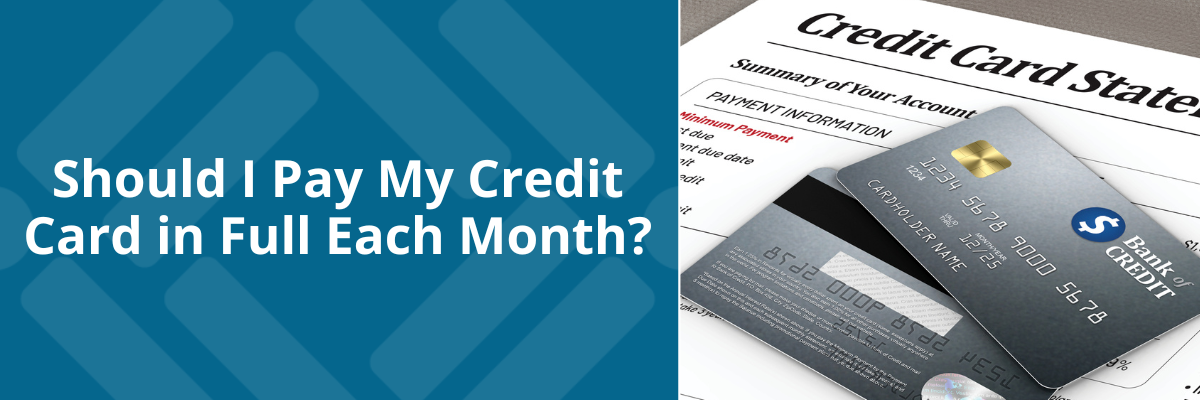Have you been trying to improve your credit score, but can’t get ahead of your monthly payments or...
Should I Pay My Credit Card in Full Each Month?

Q: Should I pay my credit card bill in full each month?
A: One of the most important decisions a cardholder faces is whether to pay off their credit card balance in full each month. Let’s take a closer look at credit card payments and how they work so you can make an informed decision about managing your monthly bill.
Minimum payments
The minimum payment on your credit card is the smallest amount you’re required to pay each month to keep your account in good standing. Typically, it’s 1-3% of your total balance, plus interest and fees.
Pros of paying the minimum payment each month:
- Prevents late fees and penalties.
- Enables you to maintain a positive credit history.
- Offers flexibility during times of financial strain.
Cons of paying the minimum payment each month:
- Accumulation of interest charges on the remaining balance.
- Longer debt repayment period that can stretch on for years.
- Higher credit utilization ratio, which can hurt your credit score.
Paying the balance in full
If you can, it’s best to pay off your credit card bill in full each month. Doing so will help you reap a range of financial benefits:
Pros of paying the balance in full each month:
- No interest on purchases.
- Improves credit utilization ratio.
- Build positive credit habits.
Cons of paying the balance in full each month:
- Requires discipline and budgeting to ensure you’re not overspending on your card.
- Limits cash flow in some situations, especially if you’re facing large, unexpected expenses.
Does paying the minimum amount impact your credit score?
Paying only the minimum amount can indirectly affect your credit score. Here’s why.
1. Credit utilization ratio
A high credit utilization ratio (over 30%) is considered a risk factor by credit scoring models and can lower your score. When you only make minimum payments, your balance stays higher, which can increase your utilization ratio.
2. Long-term debt cycle
Relying on minimum payments means you’ll likely carry debt month-to-month, which can signal to lenders that you’re struggling with debt. This can make it harder to qualify for new credit or receive favorable terms.
3. Impact on your payment history
The long-term cost of minimum payments could eventually make it harder to meet other financial obligations, indirectly impacting your credit.
Use our guide to help you make informed decisions about whether to pay your credit card in full each month.



